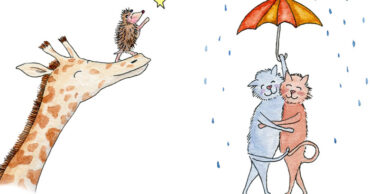Every mother wants what’s best for their child, and some mothers know they won’t be able to give their kids the best life they could have. Some choose to give them away for adoption, but 33% choose to let other family members raise them.
So did this mother, who gave her son away to her sister and husband. Since they’ve always wanted children of their own but were never successful, they welcomed the opportunity. However, after the couple finally was blessed with a daughter, the sister started demanding that they give her biological son back to her. After they refused, a feud broke out between the sisters.
A woman was raising her sister’s biological child for eight years
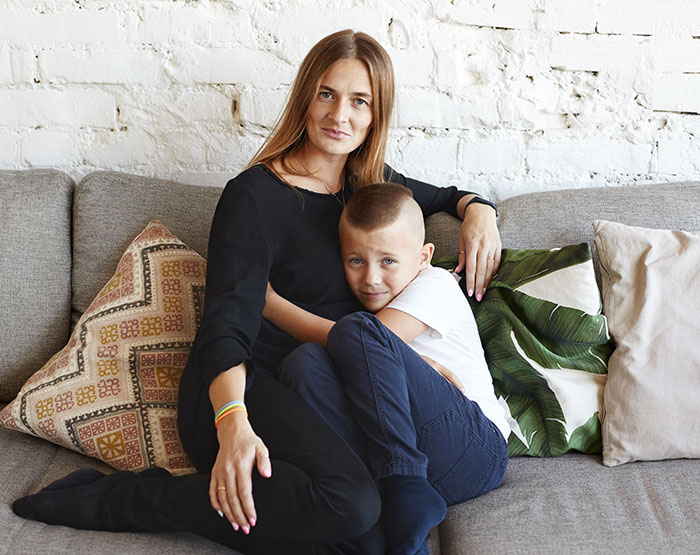
Image credits: shurkin_son/Freepik (not the actual photo)
After she had her own daughter, the sister demanded that she give the son back, since she finally got a kid of her own
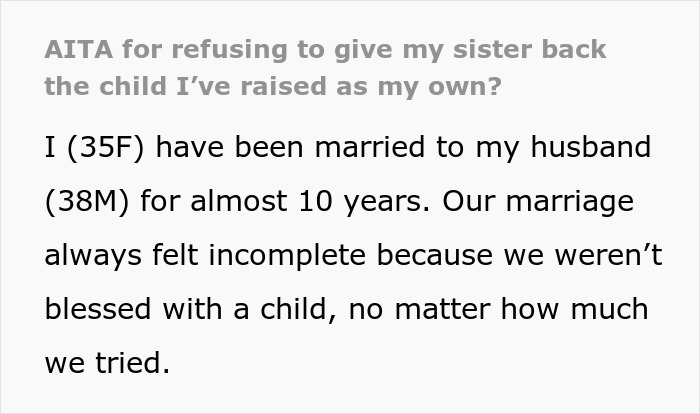
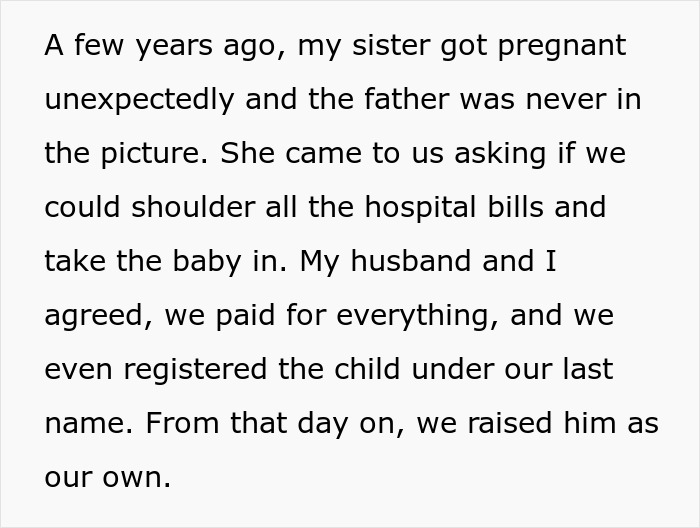
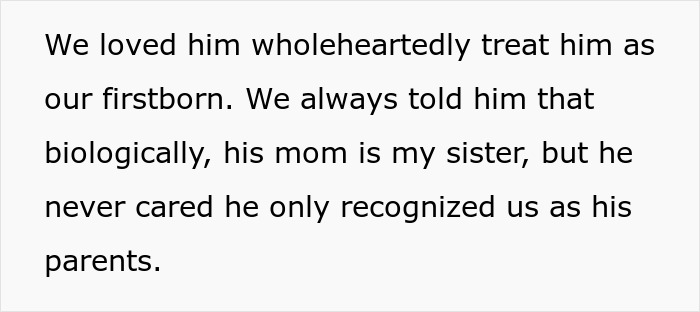
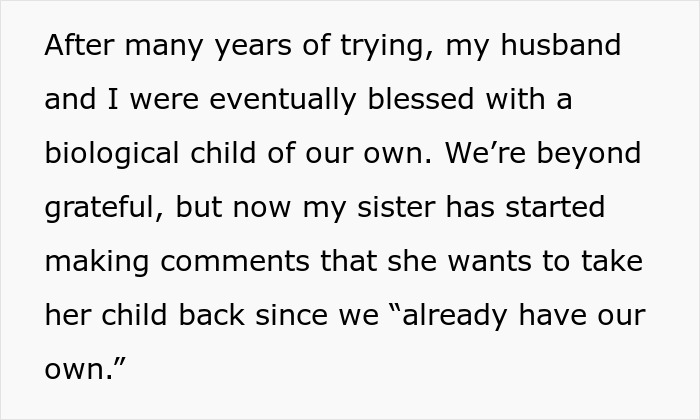
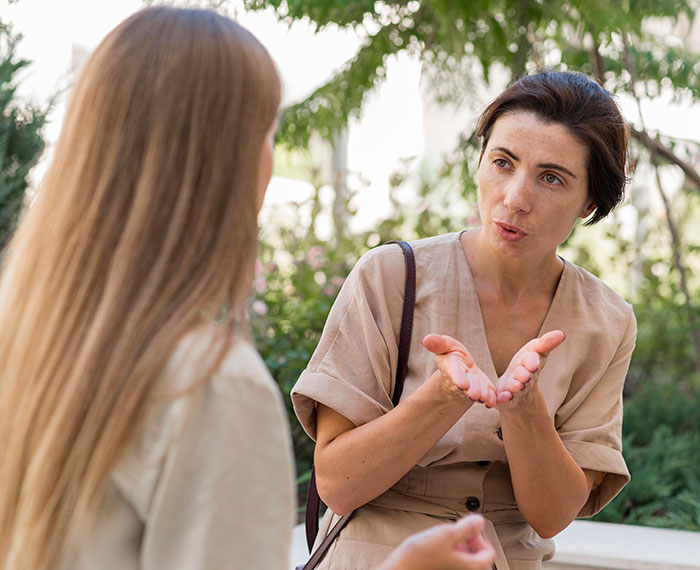
Image credits: Freepik (not the actual photo)

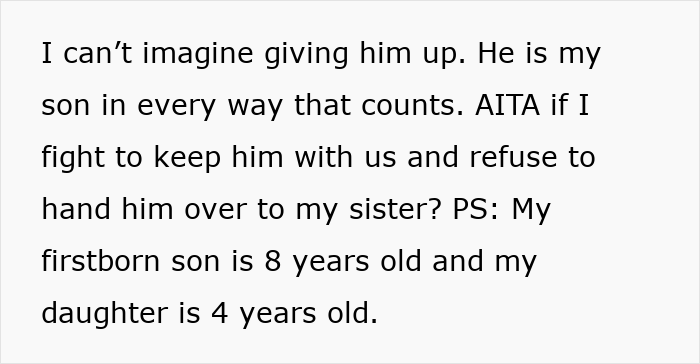

Image credits: JollyForYou
Giving your baby to family members for adoption has its advantages
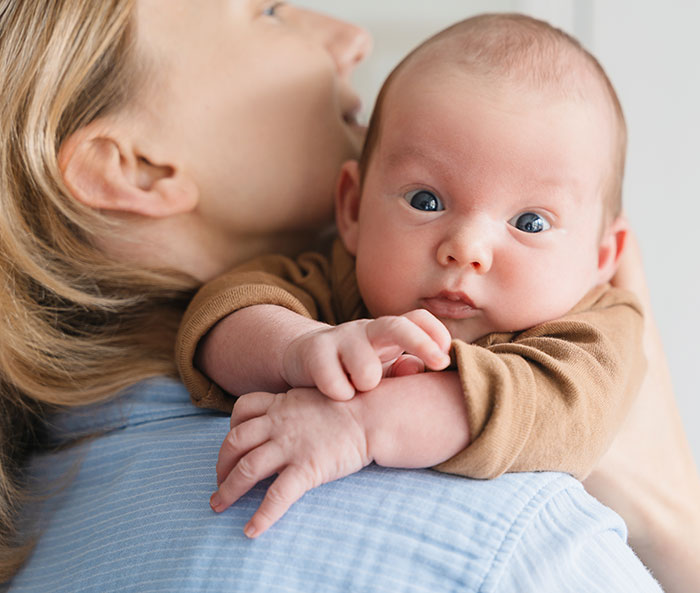
Image credits: deriabinanatalia/Envato (not the actual photo)
In an ideal world, every child would have at least one loving parent. However, in 2025, more than 77,000 children and teens are in the foster care system waiting for a permanent, loving family home. Sometimes, that becomes the literal family home: grandparents, aunts, uncles, and siblings adopting children is not that uncommon. This practice is referred to as ‘kinship adoption.’
Kinship adoption comes with pros and cons. Here are the advantages that most experts see:
But not everyone chooses to formalize raising a family member’s child. Some aunts, uncles, siblings, or grandparents might take care of a family member’s child without adopting him or her. In 2021, for example, 2.1 million grandparents were primary caregivers for their grandchildren.
But many lines also blur, confusing the adoptive parents, the child, and the biological parent
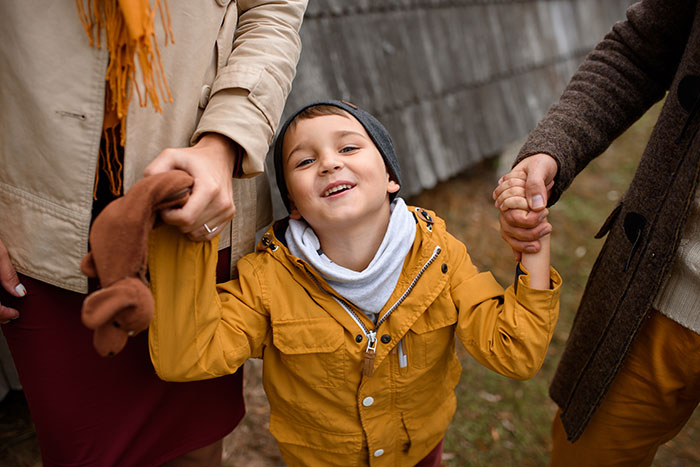
Image credits: wolfhound9111/Envato (not the actual photo)
Yet other biological parents give their children away to other family members for adoption. With adoption, the siblings aren’t just primary caregivers for the child. “When you place a child for adoption, your parental rights are terminated,” adoption attorney Meghan Cohen explains.
That might present several complications for the biological parent, the child, and the family members who adopt them.
This story is an example of how difficult it is to navigate a kinship adoption and what might happen when families perhaps don’t take the necessary precautions to set boundaries, establish clear roles, and communicate about expectations from the get-go.
But the process wasn’t as easy, since he was legally the sister’s son now
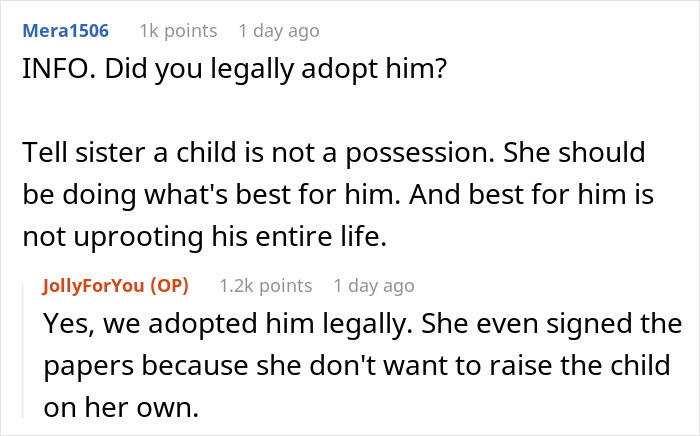
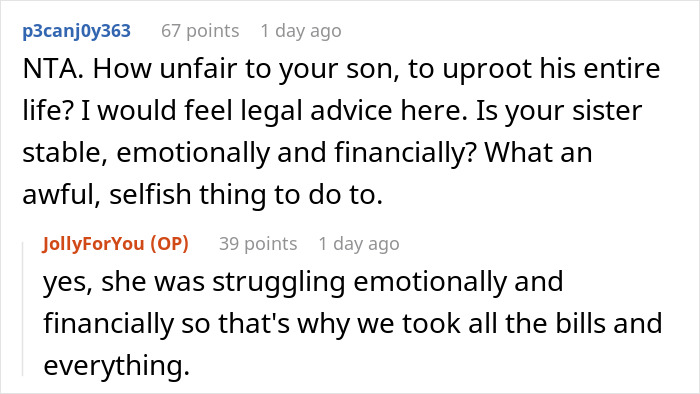


Commenters pointed out that the mother was treating the son like an object: “There’s no return policy”
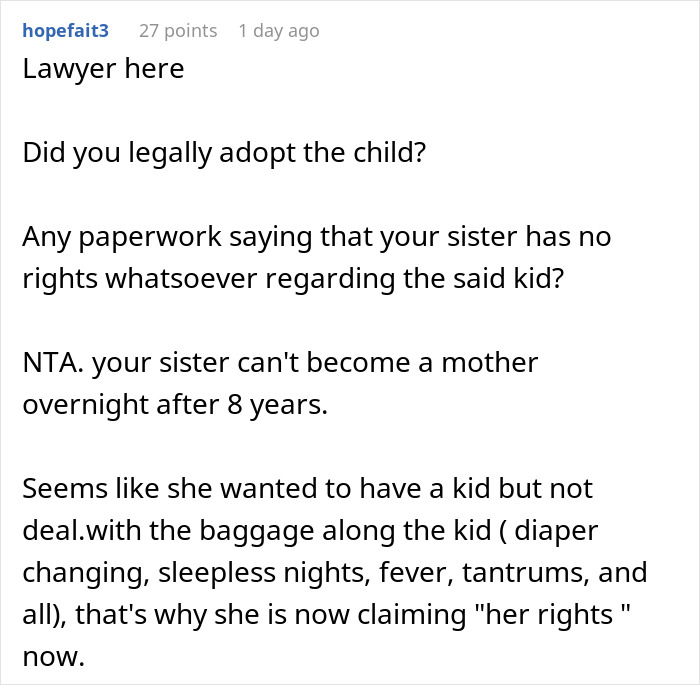

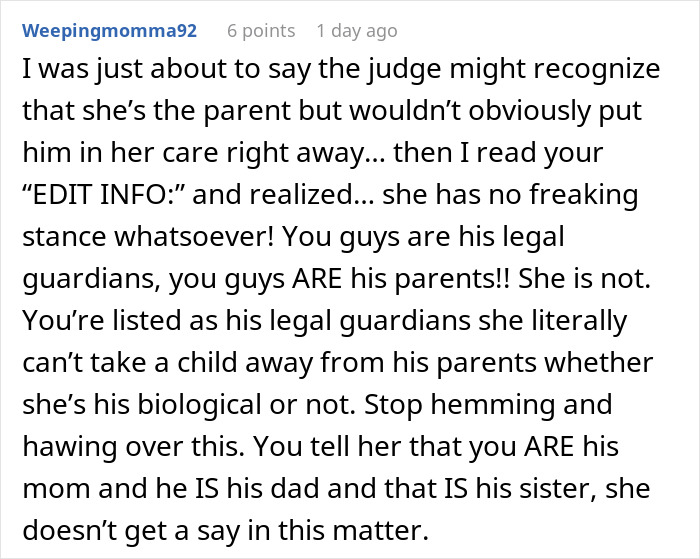
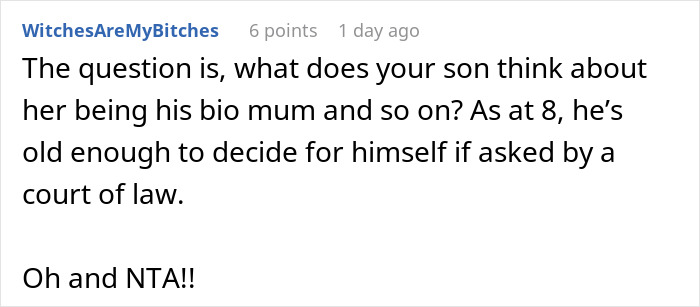
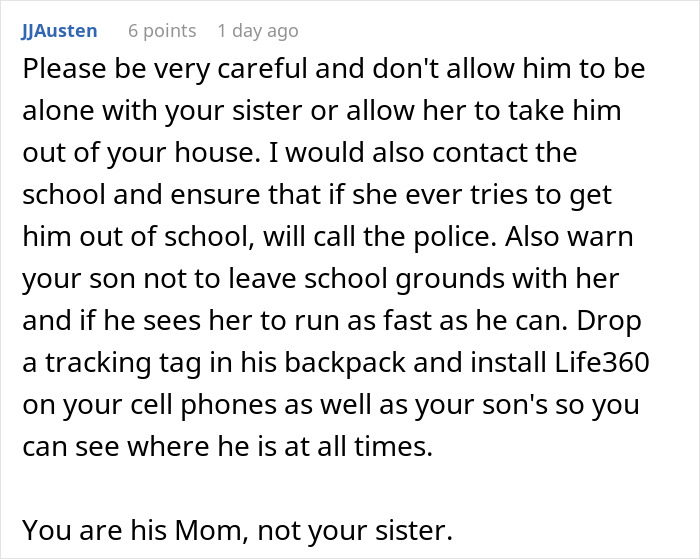

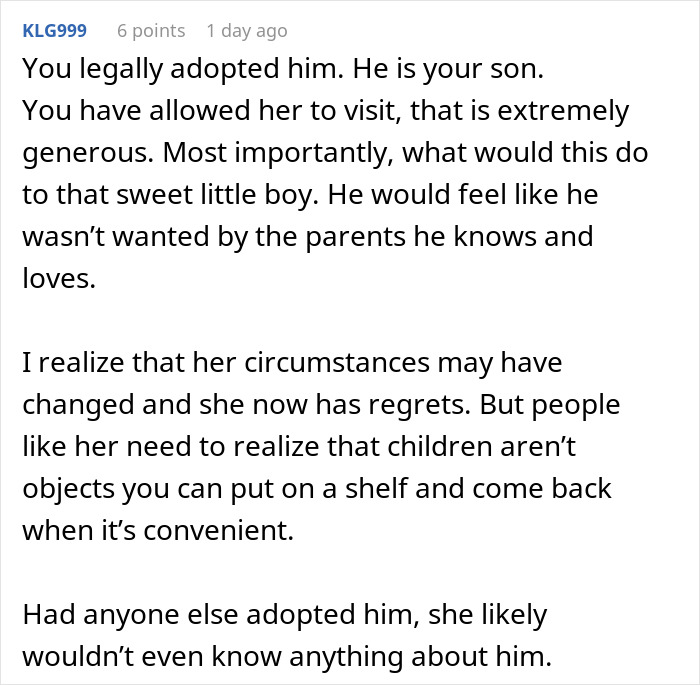


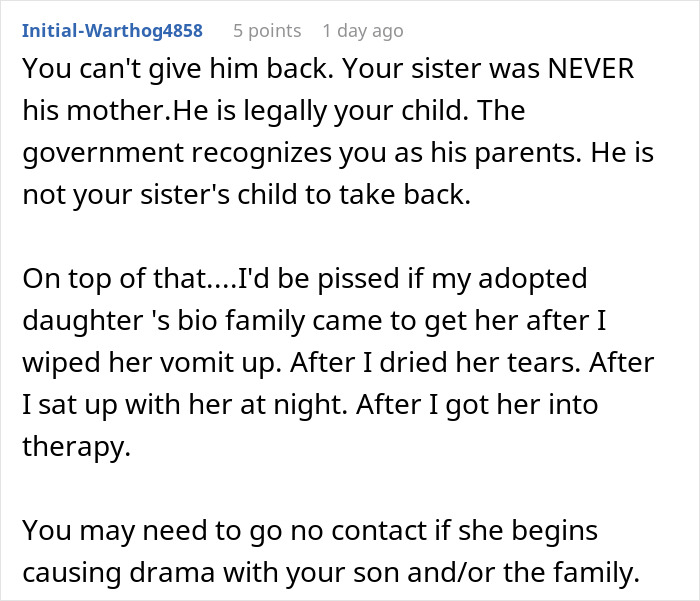
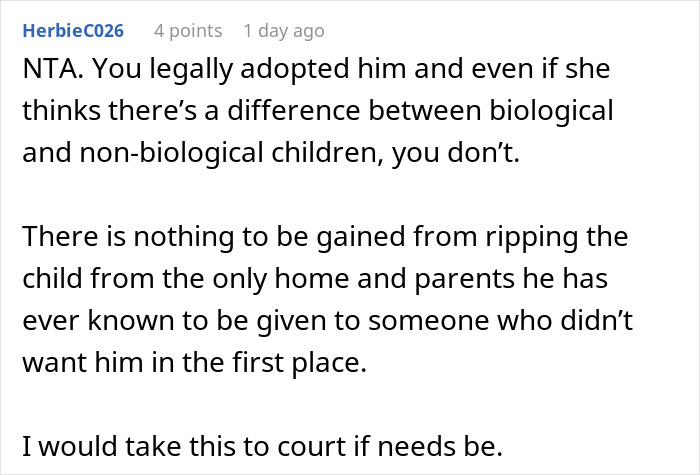
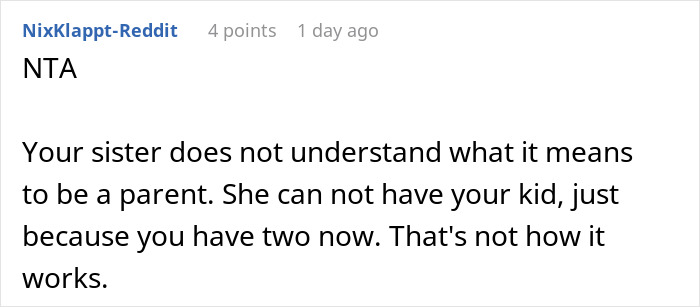


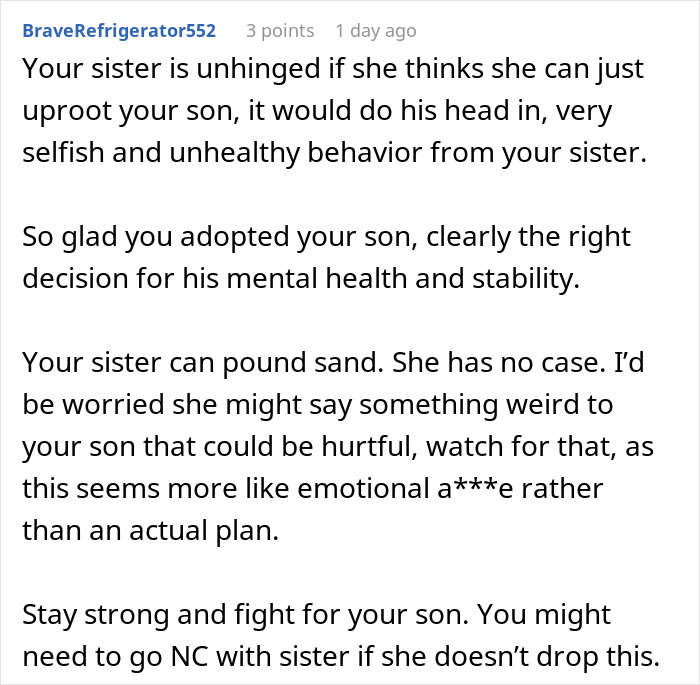






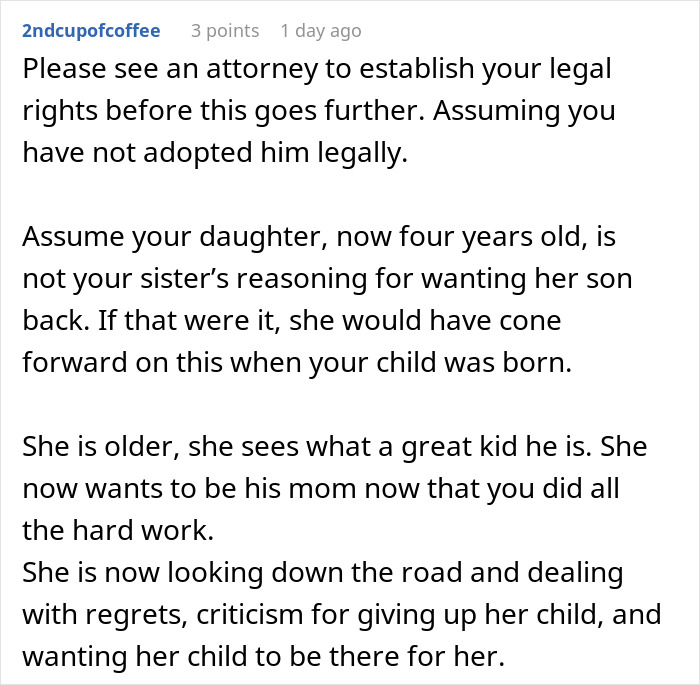

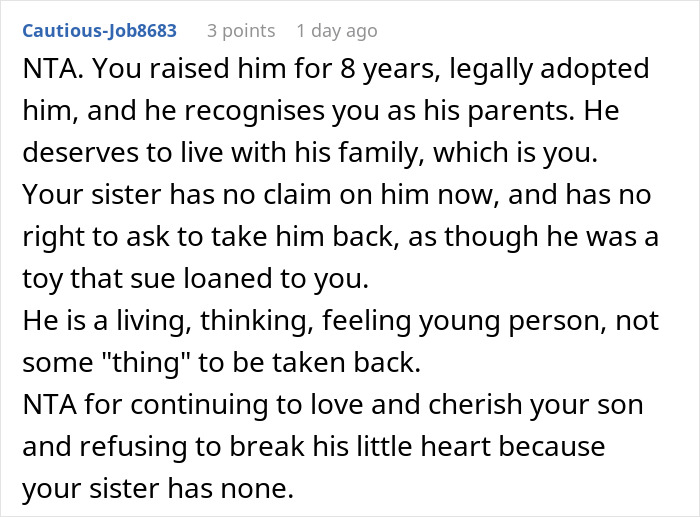
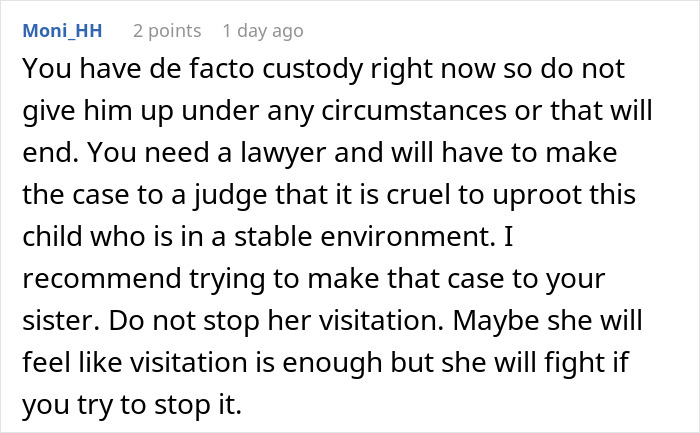


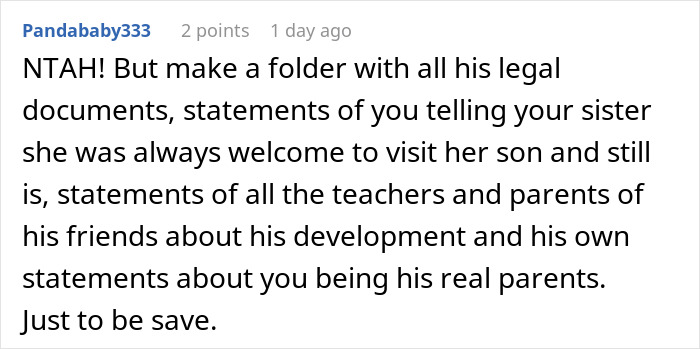
 Follow Us
Follow Us





